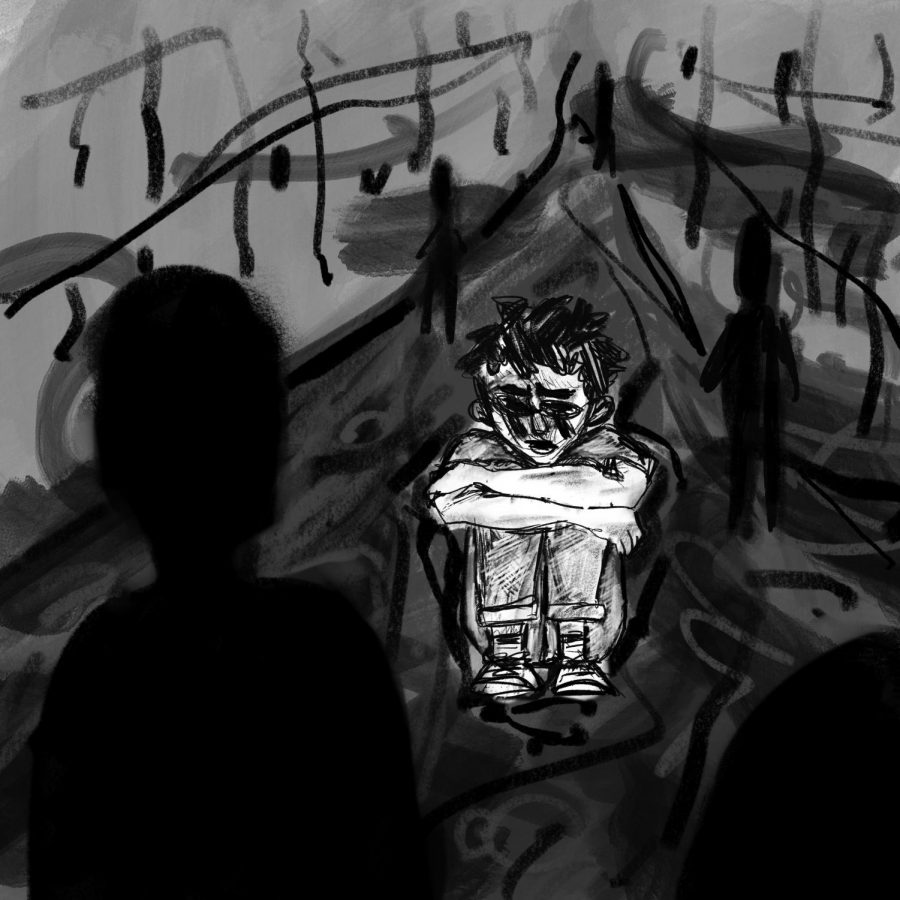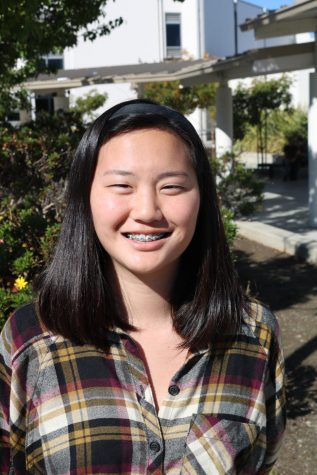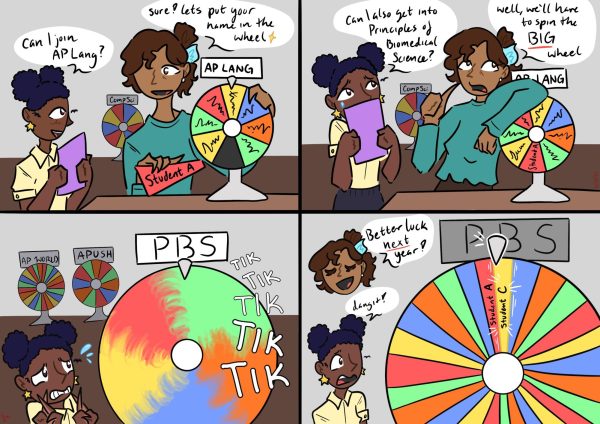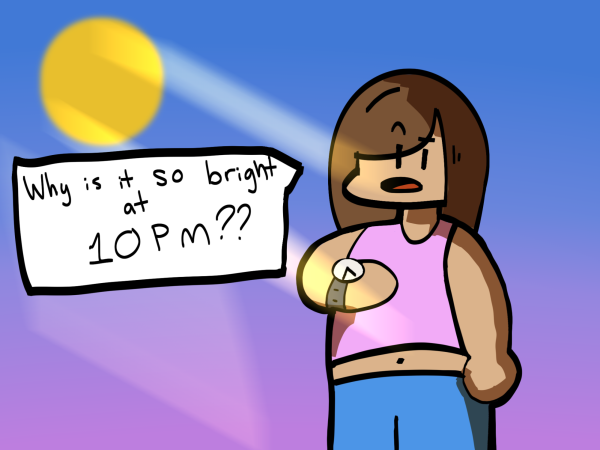The bystander effect starts in high school
The bystander effect is when individuals fail to act during an emergency situation because of the presence of others.
While this occurs during extreme situations, such as sexual assault and murder, the development of becoming a bystander can be seen in high schools.
The bystander effect, a social psychological phenomenon, became popularized after the murder of Kitty Genovese. In 1964, Genovese was murdered by her boyfriend, despite there being various witnesses who could have tried to help or called the police.
But each witness failed to act. Scientists have credited their apathy and social paralysis to the bystander effect. The size of the group and one’s willingness to act is inversely proportional. The larger the crowd, the smaller the chance of someone rising to the occasion is. This human instinct to conform can be seen in high school classrooms.
During my AP U.S. Government and Politics class, we did an informal debate. This informal debate was called “four corners.” The teacher posted a question on the board and each corner of the classroom corresponded to a different answer.
The entire classroom gravitated toward one corner, except for me and one other girl.
I said to her that even though I didn’t agree with the majority answer, I didn’t want to be the only one in an empty corner. She agreed.
This was our natural instinct to stick to the status quo, even in a trivial game of “four corners.” Our desire to not stand alone almost weakened our resolve.
While we ironically applaud those in the news for their heroic actions, in real life we conform, and make fun of those who don’t. This further perpetuates the bystander effect.
In high school you don’t really get to choose who you surround yourself with. You can try to get the same first period with your best friend and sometimes your teacher lets you choose seats, but friendships are based off convenience. You both happen to live near each other, go to the same school, and have similar classes.
Because of these arranged friendships, it’s harder to be someone who doesn’t conform to popular culture. It’s harder to find your niche of people.
In my sophomore year, I was in a Spanish class with a classmate who liked to play a unique card game during class. Many saw this as “weird” and “nerdy” just because they weren’t exposed to those interests before.
As a result, he was bullied, not in the over-dramatic way we see on TV where the bully pushes a kid’s head into a toilet, but in smaller, more subtle ways.
Another student in the classroom would say his name teasingly, and make small jokes about him. He would speak in a condescending tone to him, as if liking the card game automatically made him seem like a five-year-old.
In response to the bully’s antics, the rest of the class laughed in response, even the teacher ignored it.
Everyone in that class was passive. They knew it was wrong and yet didn’t speak up in fear of being the odd one out.
But when we fail to act, we are complicit. In our daily lives we have become too passive. Consequently, these “small” moments help us normalize our complacency. So when more serious events happen, such as sexual assault, we lack the bravery to speak up and help.
We need to become more active and independent. Whether you’re a freshman just finishing your first year of high school or a senior about to graduate, now is the perfect opportunity for change.



